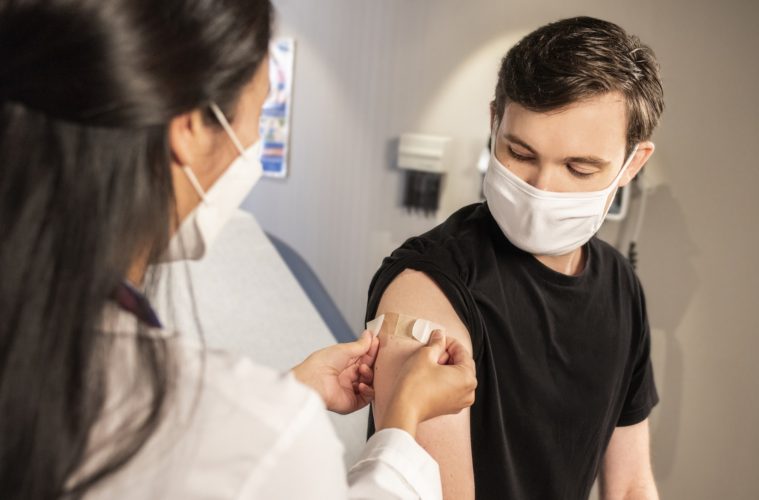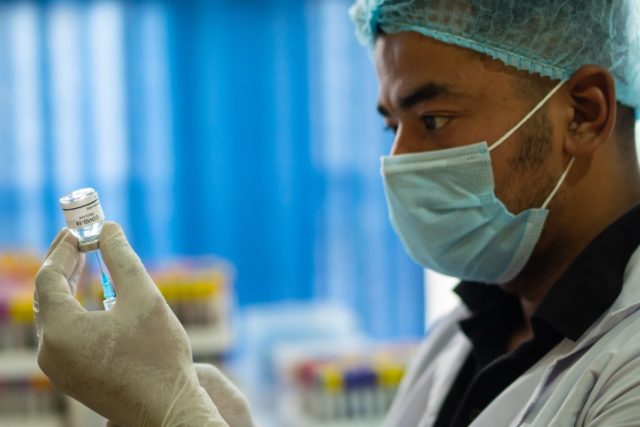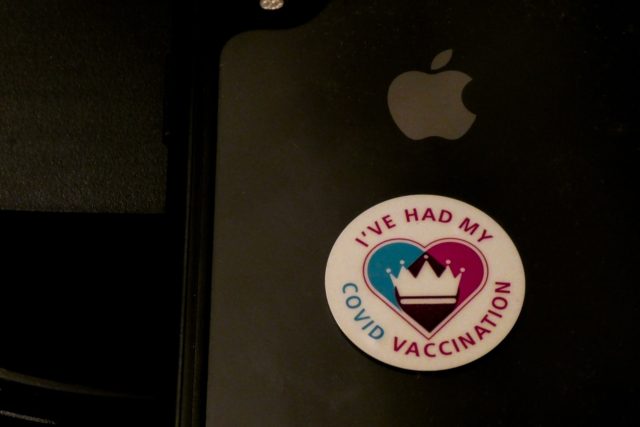Students have had it rough
It has been a rough 18 months for students with uncertainty over classes, online Zoom lessons, and lack of social interaction robbing millions of the authentic student experience. Whether you are a university student trying to complete your dissertation or a GCSE student trying to get those much needed grades, it hasn’t been easy for anybody.
Even when you have been able to attend classes in person, students have had to take regular lateral flow tests and sometimes even be forced to isolate themselves as a result of a classmate testing positive. Things look better now but it is still important that we stay safe.
What is going on?
As you might have seen on the news, the UK COVID-19 vaccination rollout has been extended so that students aged 12-17 years old can now become immunised against the virus. There is no cure for the virus but this vaccine helps provide the body with the tools needed to help ward off serious illness as well as help prevent long-term complications.
After all adults have been offered the opportunity to become immunised against the coronavirus, the NHS announced that the next stage of the vaccine rollout would be focused on immunising older students in the UK. It is worth noting that only the first dose has been offered currently, though the second dose will likely be offered in the future.
The vaccine is especially important to get if you are a young person with heart problems, cancers, and anything that results in having a weakened immune system. While children do seem to be less likely to become seriously ill from the virus, those with pre-existing conditions are more at risk of developing complications and should seek immunisation.
Why are children being vaccinated?
Many people have been asking why children have been offered the vaccine given that they are less at risk and so in this section we will try to explain why the government and the NHS have shifted focus to providing the vaccine to older students in the UK. At present, only a single dose of the Pfizer jab has been recommended by the chief medical officers in the UK.
The vaccine is currently being rolled out to young people in Wales, Scotland, and England, and will likely begin to be rolled out in Northern Ireland very soon. The vaccine isn’t compulsory for young people and isn’t needed if you wish to travel abroad but young people aged 16 and 17 years old will be able to get their Pfizer jab without parental permission.
The thinking behind this vaccine rollout is that this will help prevent further disruption for students in school as it should help prevent breakouts. It is worth noting that the vaccination won’t fully stop the spread of the virus in schools but it should reduce cases. Data suggests that being jabbed once reduces the odds of catching the Delta variant by approximately 55%.
Is it safe for children?
There is a large concern here in the UK and further afield, that the vaccine isn’t safe and that it is somehow an experimental thing. This simply isn’t the case, and we should make sure we are fully informed about what it is. This can be done by doing diligent research as well as listening to the expert doctors who are trained in this particular field.
Millions of children all over the world have had their COVID vaccine and it has been deemed safe by medical bodies all over the world. The independent regulatory body the MHRA has stated previously that the Pfizer vaccine is safe and effective in children aged 12 and 17 and so we can be sure that the benefits outweigh any possible negative consequences.
There are some side effects with this vaccine, as there is with almost any jab, but they are almost always very mild. The most common side effects that we can observe are a sore arm where you have been vaccinated, a general lethargic feeling with some achiness, and some mild flu-like symptoms. These side effects should only last approximately 24 to 48 hours.
Is this happening abroad too?
The vaccine rollout amongst young people has been done all over the world in recent months and has been successful so far, though we are likely to see the biggest benefits as we approach the winter period when COVID cases have risen previously. The US in particular has already started to vaccinate children and we can get a glimpse there of what is to come.
The US has started to vaccinate children aged 5 and above with around 28 million eligible children who will be offered one of the approved vaccines. The country has been crippled by the virus and the disjointed approach across different states has resulted in hundreds of thousands of deaths. This latest rollout may help turn the tide against COVID.
This move has been in the works for a while, and now that there is plenty of supply at the ready, the federal government has been able to at last implement this final stage of the rollout. They were one of the first countries to approve vaccination for children in this age bracket with only China, Cuba, and the United Arab Emirates greenlighting it earlier.
How else can I stay safe?
A smart way to make sure that you are safe is to get tested at regular intervals because data has shown that those who are fully immunised are more likely to be asymptomatic as opposed to showing the typical coronavirus symptoms. It has been mentioned that we should still continue to get tested if we have any concerns as we can still catch the virus.
Here in the UK, we have access to free lateral flow tests provided by the NHS. We can also attend walk-in and drive-through centres for a more comprehensive PCR test if the lateral flow test indicates that we may be carrying the virus. There are also a number of private test providers, such as ExpressTest, that can give us much needed peace of mind.






